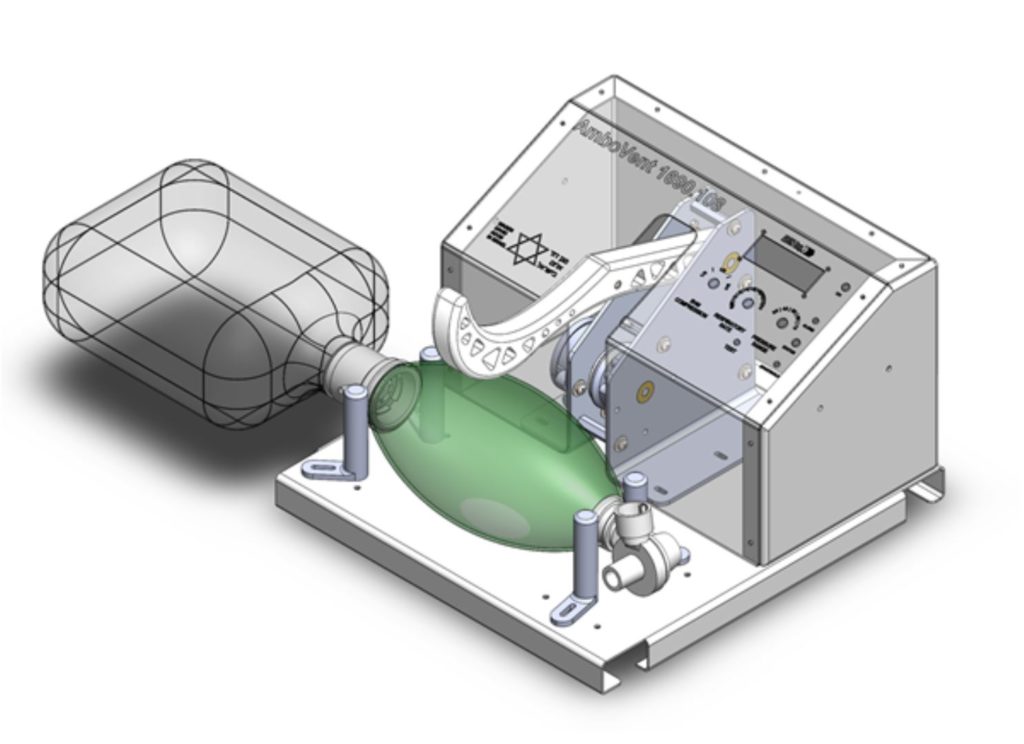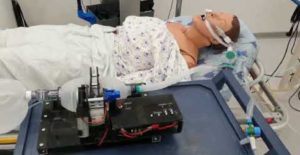All development data on the AmboVent was put online for free so people around the world can help refine the prototypes to ready them for clinical trials.
By Batya Jerenberg, World Israel News
A Haifa-based team led by an Israeli Air Force officer has invented a cheap emergency ventilation system that has garnered high ratings from organizations working to combat the coronavirus pandemic, reported Israeli breakthrough technology website nocamels.com on Sunday.
Maj. Dr. David Alkaher, the chief technical officer of the IAF’s electronic specialist Unit 108, worked with colleagues from over 40 companies and hospitals to create the AmboVent 1690.108 system in 10 days of almost round-the-clock efforts.
Magen David Adom, Rafael, Israeli Aerospace Industries, and Microsoft Israel’s Garage program are some of the prestigious names who lent a hand to the project, along with various robotics groups and doctors from the Ichilov and Hadassah Medical Centers.
After the hospital lab tests looked promising, all source codes, parts lists, electronic specs and engineering designs were freely released online last week on GitHub, a platform that hosts software development. Dr. Eitan Eliram, the project’s coordinator of communications and cooperation with global “makers, hackers, and engineers,” told the website that in just three days, it had already garnered tens of thousands of views and requests for more information.
The AmboVent was rated highly by Public Invention and EndCoronaVirus.org among dozens of ventilators being designed globally in an effort to quickly increase the supply of these life-saving machines as the number of critically ill patients rises by the hour.
According to the website, “It received a rate of 4 (out of 5) for buildability, testing, COVID-19 suitability, and clinician friendliness, but 3’s for reliability testing and manufacturability by the thousands.”
One huge advantage of the AmboVent is its cost. Whereas the price of a standard hospital ventilator is about $40,000, the team estimates that its invention would probably cost less than $1,000.
Twenty prototypes are being sent to clinicians and developers around the world so that they can be inspected by their countries’ regulators, refined and tested. There is no thought to profit from this venture, said Eliram.
“All the Israelis in this project wanted to save lives,” said the former director of new media at the Prime Minister’s Office. “They don’t care about IP [intellectual property] or money, they just wanted to be part of the network of innovators fighting the coronavirus.”
Animal trials will hopefully begin in the very near future in Jerusalem’s Hadassah-University Medical Center, he said.
“It is not a medical device yet,” Dr. Eliram told NoCamels. “We need to do a few more tests and build a better version. There’s a whole regulatory process, but we are receiving guidance from the Health Ministry on our path toward testing.”



